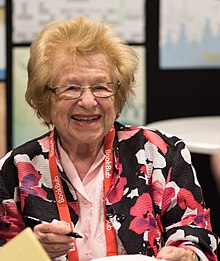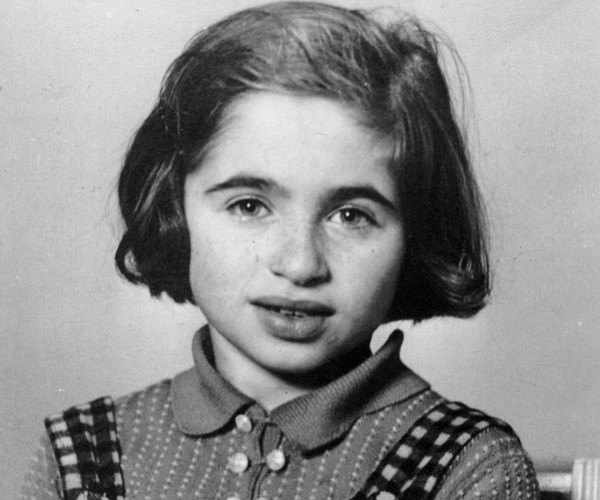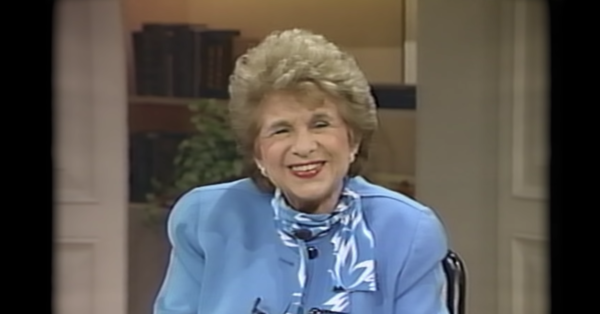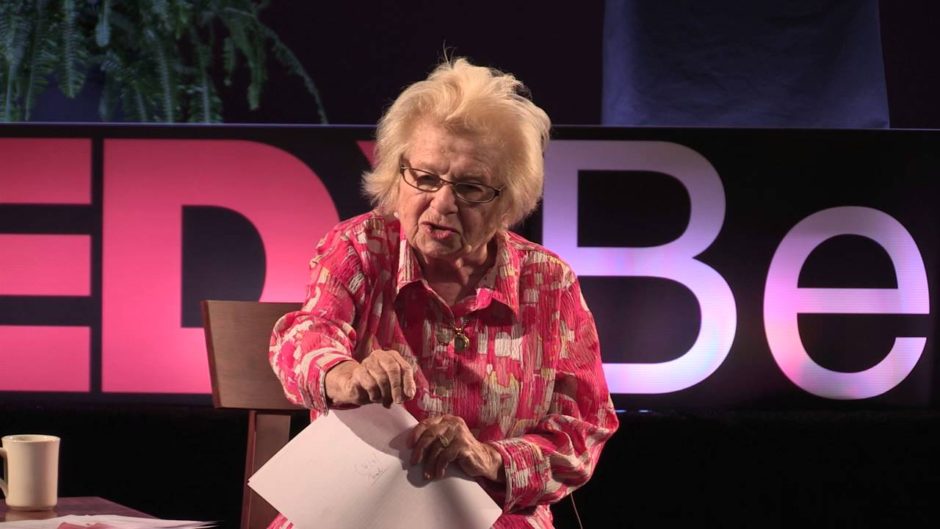American sex therapist Ruth Westheimer whimsically asks Alexa, her electronic assistant, to identify Ruth Westheimer. Alexa’s disembodied answer is correct, bringing a smile to Westheimer’s face. “She knows who I am,” she exclaims excitedly.
Westheimer, a Jewish refugee from Nazi Germany, is indeed famous. Long a fixture on radio and television, the author of a torrent of books, and a university lecturer in New York City — where she has has lived in the same apartment building in Washington Heights for the past 54 years — she is still going strong at the age of 90.
“There is no such thing as retirement for me,” she says in Ryan White’s bouncy biopic, Ask Dr. Ruth, which opens in Canadian theatres on May 17.
Constantly on the go, with a jam-packed calendar of appearances awaiting her, Westheimer was the first broadcaster in the United States to discuss sex, sexual problems and relationships so explicitly.

As White’s documentary gets under way, Westheimer, a diminutive and elfish person who speaks English with a heavy German accent, offers two pearls of wisdom: The size of a man’s penis has nothing to do with a woman’s satisfaction, and short people are the best lovers. Is she thinking of herself? Maybe, maybe not. Who knows? Despite her tendency to be chatty, she keeps this information confidential.
She is a lot more open concerning her childhood. Born in the town of Wiesenfeld in 1928, she was the only child of the Orthodox Jews Julius and Irma Siegel. Back then, as a child, she was known as Karola Ruth Siegel. In November 1938, when nation-wide pogroms convulsed Germany, Julius was interned in a Nazi labor camp. In the following year, Karola was placed aboard a Kindertransport train bound for an orphanage in Switzerland. “My parents gave me life twice,” she says. “Once when I was born and again when they sent me to Switzerland.”
She continued receiving letters from her parents until 1941. On a trip to Yad Vashem, the Holocaust memorial in Jerusalem, she discovered that her father had been murdered in Auschwitz. The fate of her mother remains unknown, but she, too, was probably killed by the Nazis somewhere in Eastern Europe. Pondering their tragic deaths, she refers to herself as an “orphan of the Holocaust.”

Westheimer arrived in Palestine in 1945, dropping her Germanic first name, calling herself Ruth, and experiencing her first sexual encounter in the hayloft of a kibbutz. In the leadup to the first Arab-Israeli war in 1948, she trained as a sniper. Seriously wounded when a bomb struck a building, she spent months recovering from leg injuries.
Westheimer has been married three times and has two children. She and her first husband parted ways in Paris after he pulled out of medical studies and decided to return to Israel. She and her second spouse, whom she met in France, immigrated to the United States in 1956. They divorced two years later. For a while, she worked as a house maid to support herself. “I was very poor,” she says. “I had no money.” Westheimer’s most successful marriage, to Manfred Westheimer, an engineer, lasted from 1961 until his death in 1997.
Westheimer does not consider herself a feminist, but her views coincide with the tenets of that movement. In her first meaningful job in America, she worked for the Planned Parenthood organization as a counsellor in Harlem. Having acquired degrees in psychology and sociology, she completed her PhD in education at Columbia University when she was 42. Then, after training as a sex therapist at Cornell University, she opened her own practice.
She broke into the limelight in 1981 as host of Sexually Speaking, which became an immensely popular radio show. She branched into television with the program Good Sex. Since then, she has written many books.

When she turned 90 last June, she was delighted that The New York Times marked the occasion by running a feature story about her.
“She continues to educate and inspire us,” a friend says as she celebrates this special birthday.
A human dynamo, Westheimer shows no signs of slowing down. As she puts it, “I have an obligation to live large and make a dent on this world.”
Judging by this film, she has already done so.
